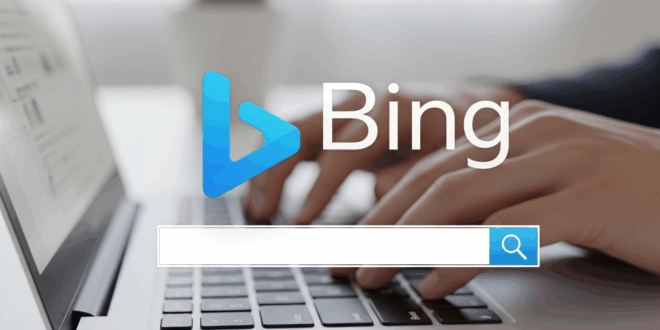Sure! Here’s the rewritten article in English with capitalized titles:
Bing is the latest search engine developed by Microsoft. Used since 2009, it has become Google’s main competitor. Discover more.
Bing gets its name from the exclamation associated with finding something, evoking the idea of “bingo!” Microsoft chose this name to reflect the moment of discovery, which is central to the online search experience. Today, after more than a decade of evolution, Bing continues to improve by leveraging the latest advancements in artificial intelligence (AI) and offering unique features to users. What are the advantages and limitations of Bing?
Bing: History
Before launching Bing, Microsoft developed several search engines. MSN Search, launched in 1999, was Microsoft’s first foray into this field. This was followed by Windows Live Search and Live Search. In 2009, Microsoft finally consolidated these efforts into a single search engine: Bing, unveiled by CEO Steve Ballmer at the “All Things Digital” conference in San Diego.
Why This Name?
The choice of the name Bing was not made lightly. It’s easy to remember and evokes the idea of a new discovery. Microsoft wanted a name that could be used as a verb, much like “to google.” While jokes like “Bing is not Google” circulated, Bing quickly became a serious alternative due to its enhanced performance and usability.
Bing and AI: Large-Scale Deployment
Since 2025, Microsoft has given its search engine a new face with the launch of Copilot Search, a major evolution of Bing AI. This version combines the power of traditional search with the advanced capabilities of generative artificial intelligence. Now, every query is analyzed by a conversational agent capable of understanding context, providing enriched results, and formulating natural responses with reliable sources.
Integrated directly into Bing and Microsoft Edge, Copilot Search is based on a hybrid model that merges GPT-4 with Microsoft’s internal technologies like Prometheus. The result is a unified, intuitive, and interactive interface that goes beyond mere links. Users benefit from contextual suggestions, intelligent summaries, and the ability to ask follow-up questions in a conversational flow.
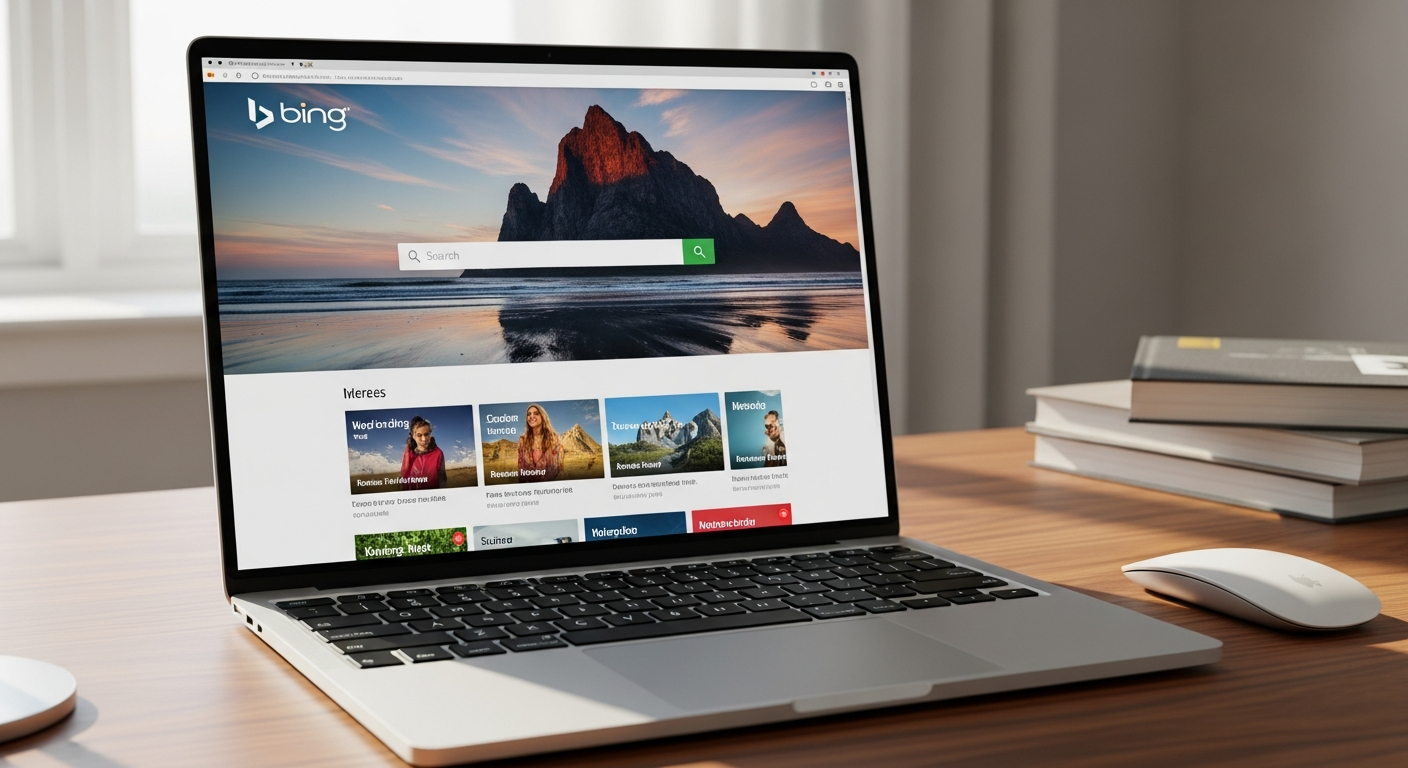
The global rollout, which began in April 2025, marks a shift in the way information is searched. Bing AI now offers assisted actions (booking a flight, generating a summary, creating an image) and adapts to personal needs through conversational memory. With this advancement, Bing establishes itself as a reference in augmented AI search, capable of competing with emerging engines while solidifying its position against Google.
Furthermore, there is also a significant adjustment for publishers. Bing now supports the data-nosnippet attribute. This announcement was made on October 15, 2025. What exactly is changing? It allows webmasters to block the use of certain content in the snippets displayed by AI, including those generated by Copilot.
This move responds to a strong demand from publishers. As the line between search results and automated summaries has blurred increasingly, this evolution shows that Microsoft is gradually adjusting its engine to account for the expectations of content creators. This comes after the initial launch, which was sometimes viewed as overly aggressive in the SERPs.
Main Features of Bing
Bing has several features, but some are more important than others. The first concerns how it is programmed to categorize searches before displaying them.
For searches in certain domains, Bing displays a sidebar called the exploration panel on the left side of the screen. In this panel, users can see results categorized by relevant sections, such as images, quotes, biographies, etc.
According to Microsoft, the goal is to facilitate users’ searches. It displays the most likely related results based on searches performed.
These search categories are also available in the main results section.
Bing has other characteristics that distinguish it from its competitors, particularly Google. The interface, search optimization, and certain features are clearly different for the two search engines.
Privacy on Bing
The best way to ensure your privacy when using Bing is to log into a Microsoft account. It is advisable to use Microsoft Edge with Bing.
On Bing.com, you can click on the three horizontal line menu at the top right of the page. Next, tap on Search History and see the option to view and clear your search history. However, Microsoft’s privacy page states: “You can clear the browsing data we collect when you use Cortana and Microsoft Edge.” Therefore, while you can clear your search history with just Bing.com, you may need to use Edge to view and clear the collected search data—which makes a difference.
You can access your privacy controls by going to the link above and clicking on Sign In With Microsoft. The Browsing History section explains how Edge saves information about the websites you visit using the browser.
It also states how to view and delete this browsing history. Again, it does not specify what happens to your data if you solely use Bing.com, even if you are logged into your Microsoft account. To be as secure as possible, we suggest using Bing with Edge.
About the Bing Search App
The Bing app is available on Android and iOS, providing a mobile-optimized search experience. In addition to standard results, the app offers features like Near Me to find nearby places, Fun for games and quizzes, and Gas to locate gas stations along with fuel prices.
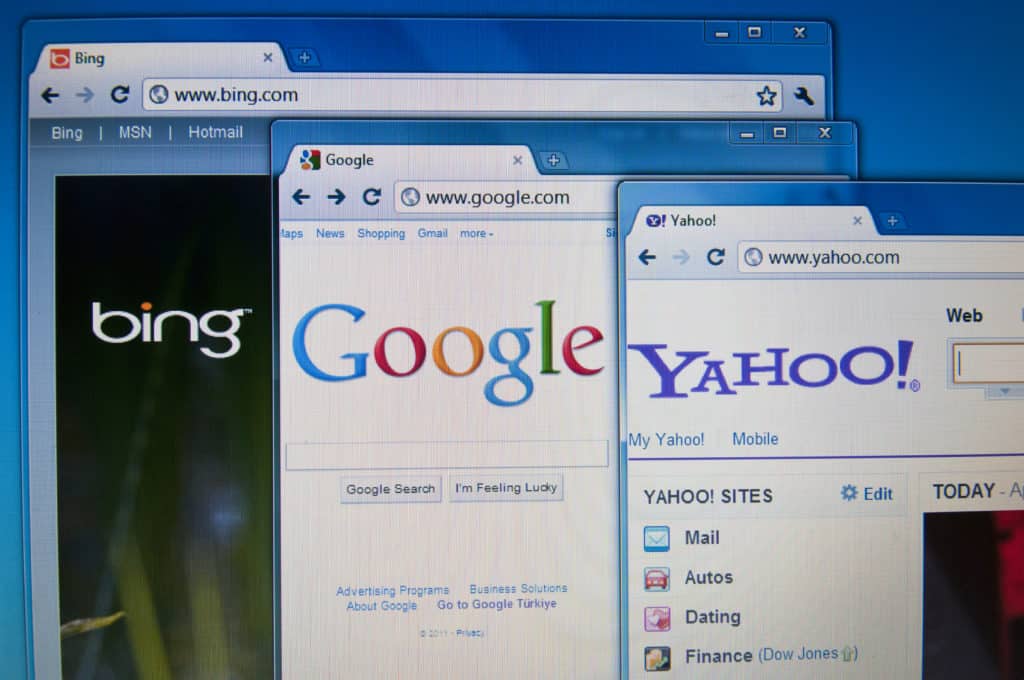
What Is the Bing Web Search API?
The Bing Web Search API constitutes a true RESTful tool. It provides instant results for user searches. Among these responses are images, web pages, videos, translations, and news. The Bing Web Search API presents results in JSON format based on the relevance of the query.
This service proves optimal for accessing comprehensive data. Indeed, the solution does not merely present instant results; it also offers complementary features and characteristics that allow for the customization of individual search results.
This allows the creation of personalized and ad-free search experiences for topics of interest to users. Additionally, it is possible to define the domains and web pages on which Bing searches. Users can also pin, boost, or downgrade specific content, creating a personalized view of the web that helps users find relevant content more quickly.
The customization of the obtained results depends on the user’s location or market. The location can be determined via IP address or configured explicitly.
The Bing Web Search API could easily be launched from any programming language capable of parsing JSON responses and processing HTTP requests.
However, this service is no longer available today. The Bing search APIs were officially shut down on August 11, 2025. On that date, all active instances were disabled, and it was no longer possible to register or use the service.
This decision aimed to direct businesses towards Grounding with Bing Search, which is now integrated into Azure AI Agents. Thanks to this system, AI agents can (and still can) draw on public web data in real time to enrich their responses generated by an LLM.
What Is Bing Places for Business?
Bing Places for Business is an online directory service launched in 2013, similar to Google My Business. It allows local business owners to list their businesses in Bing search results and on Bing Maps. Listings include key information such as name, address, and opening hours, which can be enriched with images and links to social media profiles.
This service helps businesses increase their online visibility and drive traffic to their website or physical store. Businesses can also manage their listings remotely via an online interface or a mobile app, making regular updates easier.
What Does Bing Do Better Than Google?
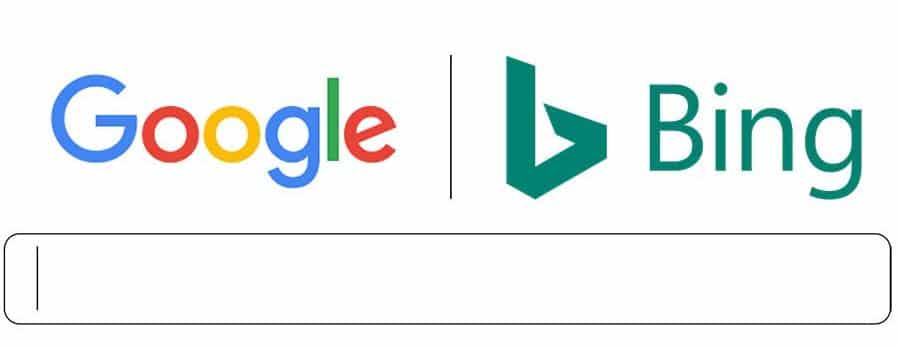
While Google is the most used search engine, Bing excels in several areas where it surpasses its competitor. One major advantage is the absence of repetitive captchas, allowing for a smoother search experience, especially for those using VPNs or private networks.
Bing also provides a superior experience in image and video searching. Unlike Google, Bing offers a horizontal scrolling feature for images and allows users to view videos directly from the results page without navigating to third-party sites like YouTube or Facebook.
Additionally, Bing is characterized by a more visual and customizable interface. Users can easily change the region or country of their search, a process that is often more complicated on Google.
Advantages and Limitations of Bing Compared to Google
Google is the main competitor of Bing, though several other search engines like DuckDuckGo and Dogpile also exist.
The strengths and weaknesses of Microsoft’s search engine will thus be analyzed in comparison to Google.
The Quality of Search Results on Bing Compared to Google
Overall, the quality is more or less similar for both search engines, but with one caveat. When searching for urgent information, such as news articles or updates, Bing tends to lag behind Google.
The publication date is not always displayed with the results, making it impossible to know which article is the most recent.
For instance, if you search for the best VPN to secure your browsing online, Google will display the most recent results. Bing merely lists all results without distinguishing the most recent entries.
And because Bing doesn’t show publication dates, older articles and videos tend to appear first in the results.
Conversely, Google pays attention to publication dates. It shows the most recent articles at the top of the search results.
Google also has an advantage when it comes to advanced searches. When navigating Bing, you must select a results tab (videos, images) to see the other search options.
How to Switch from Bing to Google?

Switching from Bing to Google in Firefox
After using Yahoo! for years, Firefox now adopts Google as its default search engine. Those who switched from Google to Bing or another search engine can revert easily.
To do this, open Firefox to locate the menu button (three lines) and click it. Then scroll down to Options and select the Search option. Once you locate the Default Search Engine option, select Google from the list. This action will instantly make Google the default search engine in Firefox.
Changing the Search Engine in Chrome
Chrome, being a Google-owned browsing application, has Google set as the default search engine with factory settings. However, at some point, the user may switch to Bing and want to reset the browser’s main search settings to Google. Therefore, they just need to select Settings at the bottom of the dropdown menu.
In the ” Search Engine” section, select the dropdown to choose Google as the primary search engine. The bar will also display Bing, Yahoo, Ask, and AOL as options.
Change Bing to Google in Microsoft Edge
Microsoft introduced its Edge browser with Windows 10 to replace Internet Explorer as the default search engine. Edge sets Bing as the default browser. To replace it with Google, you first need to click on the three dots in the upper right corner of your browser.
In the menu, select Advanced Settings. Under “Search in the Address Bar,” the user will also need to click the Change Search Engine button. Bing, DuckDuckGo, Google, Twitter, and Yahoo Search are optional. After clicking on Google, they should select “Set as Default”. The default search engine will thus change from Bing to Google.
How to Completely Get Rid of Bing?
To Remove Bing from Edge Browser
With the integration of Microsoft Copilot Search into Microsoft Edge and Windows 11, managing the default search engine has evolved. The old instructions for removing Bing or replacing it in Edge or Internet Explorer are no longer relevant.
To disable or replace Copilot Search (formerly Bing):
- Open Microsoft Edge on Windows 11.
- Click on the three dots in the upper right corner and select Settings.
- Go to Privacy, Search, and Services, then Address Bar and Search.
- In the Search Engine used in the Address Bar, choose an alternative search engine (Google, DuckDuckGo, etc.) and click Set as Default.
- Restart the browser to apply changes.
Replacing Bing in Internet Explorer
To remove Bing from Internet Explorer, go to the Settings icon. Then click on Manage Add-ons to select search service providers. At the bottom of this window, choose to Find more search engines and select your desired search engine. There are few options, but the Google search function is available.
Next, click Add and repeat the process. Select the Close button in the Manage Add-ons window.
To continue, the user must click on the Settings button and again click Manage Add-ons to choose Search Providers. Then they must set the search engine added in the previous step and click Set as Default before closing.
Switching from Bing to Another Search Engine in Firefox
To replace Bing as the search engine in Firefox, navigate to the search engine, as indicated in the previous section. Then, select the three horizontal lines in the upper right corner and choose “Options” to click on Search. Next, click on the arrow next to the indicated search engine to choose one to use. For this step, there is no need to click on Save or Close.
Replacing Bing in Chrome
To remove Bing from the Chrome web browser, in Chrome, access the search engine to use. Select the three vertical dots in the upper right corner of the browser window and choose Settings. Before finishing the operation, select the arrow next to the current search engine and choose the one to use.
PubHub Integrates Bing Webmaster Tools
Microsoft has transferred the Bing News PubHub from its microsite to the Bing Webmaster Tools platform, the company announced this morning. This makes it easier for publishers who have already verified their sites with Bing Webmaster Tools to access the PubHub features.
Bing News PubHub was first launched in June 2016. This portal allows news publishers to submit their sites at pubhub.bing.com. While pubhub.bing.com is still online, it now informs publishers, “We have integrated Bing Webmaster; please visit Bing Webmaster Tool.”
Bing News uses the following criteria to help evaluate news sites:
News
This section includes reports on events and topics of interest to users of the services. Content not focused on reporting, such as practical articles or job offers, is not considered of interest.
Originality
This includes unique facts or perspectives. In fact, originality or uniqueness becomes a crucial way to determine the value of an individual story to a user.
Authority
Authoritative news sites maintain the highest levels of trust and respect from our users. Submissions must identify sources, authors, and attribution for all content.
Readability
This category includes content that features correct grammar and spelling, making navigation through the site’s design easier. Advertising must never interfere with the user’s site experience.
Bing Integrated into Other Microsoft Products
Edge/Internet Explorer
The default browser installed on all PCs, Edge or Internet Explorer from Microsoft, is used by a significant number of users. It represents 8% and 6.7% of the US desktop browser market. With this combined market share of 15%, Bing is also their default search engine.
Among those using this default browser, very few consider changing their default search engine.
Bing Browser
The 1.2 billion Office users use Bing without realizing it. This applies whether they type in the search bar or right-click a keyword to search within an email or document. Besides Office, other Microsoft applications like Skype and Teams also integrate Bing for their search results.
Xbox
Even away from the office and their computers, Microsoft captures the attention of more than 65 million active gamers who relax at home with their Xbox console. Between actions, when players take breaks to search for the latest games, they find themselves using Bing on their Xbox.
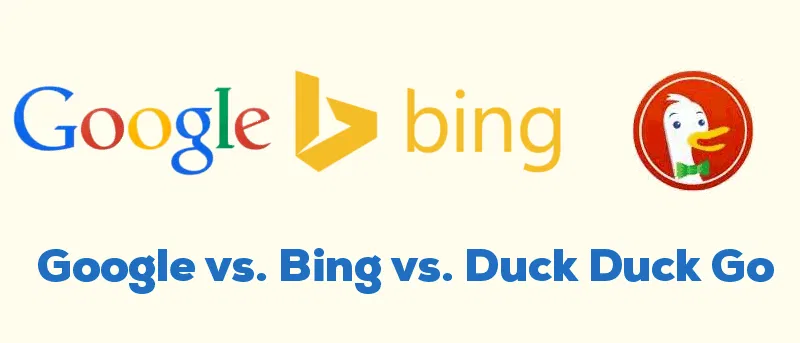
Performance Comparison of Bing with Other Emerging Search Engines in 2024
The competition among search engines has intensified, with Bing positioning itself as a key player against other emerging engines. You can learn more by checking out our other article on the same subject. Indeed, Google continues to dominate the market. However, alongside it, alternatives like DuckDuckGo, Brave Search, and even AI-driven solutions like Neeva are starting to gain traction.
Bing, with its advanced AI integration and ability to provide personalized results, strives to stand out. Users particularly appreciate the relevance of Bing’s results. The reason? Its improved algorithm takes into account context and search history.
On the other hand, engines like DuckDuckGo emphasize privacy protection, attracting users concerned about their personal data. Brave Search, in contrast, stands out with its decentralized model and transparency.
Initial performance analyses indicate that Bing offers a smooth user experience and often more precise results than some of its emerging competitors. However, the diversity of user needs means that each search engine finds its audience. Consequently, the battle to capture market share continues to grow stronger day by day.
What Are the Alternatives to Bing in 2025?
In 2025, several sophisticated alternatives to Bing AI are available. Google remains a dominant player with its traditional search engine and AI-powered Google Search tool. ChatGPT from OpenAI also offers an integrated search combining conversational capabilities with contextual results. Anthropic with Claude provides an ethical and nuanced approach to informational searches, prioritizing accuracy and source reliability.
Additionally, DuckDuckGo retains its secure positioning to attract privacy-conscious users. It offers results without advertising targeting and without tracking personal data. Its algorithm has significantly improved and provides a quality of results comparable to major market players.
Moreover, French and European solutions are becoming more relevant. Qwant maintains its strategy of protecting personal data with efficient search algorithms. Similarly, Ecosia continues to stand out due to its environmental commitment. Lastly, some emerging tech players propose innovative approaches, with platforms directly integrating generative artificial intelligence into their search processes.
FAQ
Bing IA, also known as Copilot Search, is the evolution of the Bing engine launched in April 2025. It combines traditional search with generative AI (GPT-4/Prometheus models) to provide enriched answers, summarized with sources, and interactive suggestions.
You can ask questions via the Copilot bar in Edge or on bing.com. The AI generates clear summaries, cites its sources, and suggests related research avenues. The experience is conversational, allowing you to ask follow-up questions.
The prompts and results from Bing IA are processed by Microsoft. User data may be audited according to Microsoft 365/Entra policies, with options to erase history via account or browser settings.
If you have any further modifications or need assistance with anything else, feel free to ask!

